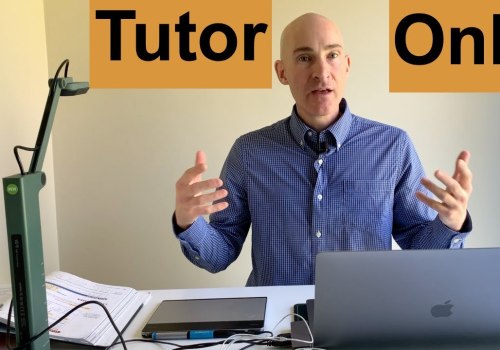Tutors need at least a high school diploma to work with students. Diplomas also allow tutors to continue their education at four-year community colleges or universities if they choose to study teaching or become subject matter experts. There are multiple avenues of training for tutors, such as Profs online tutors, which require guardians to have at least a high school degree before they can apply for certification or begin tutoring younger students.
They will need a bachelor's degree before they are qualified to find work in a mentoring agency or organization. Many people think they need a degree in education to become tutors. However, tutoring jobs are available to anyone with a high school diploma or GED. There are many tutoring jobs available to work with elementary, middle, or high school students.
If you identify with any of these, then tuition could be a viable option for you. You don't need a teaching degree, have completed a particular course, or have a particular work experience. Tutors are a diverse group, but everyone should have the required subject knowledge, a passion for learning, and a friendly, professional manner. As more and more people are flooding the tutoring market, you should take some precautionary protective measures against any professional and personal liability, especially when you don't have qualifications or certificates.
Certification is provided by the National Tutoring Association, the American Tutoring Association, and other qualified organizations. But there is a great deal of variety in how much online tutors earn, and grades are a big factor in the income that tutors should expect. For example, if you don't have a qualified training certificate or an official qualification, it can be quite difficult for you to establish that you can meet established mentoring standards. The qualifications you need to start working as a tutor will depend on the platform you use, as well as the subject you decide to teach.
Many students in the United States seek tutors who are different from conventional teachers and who have unique skills and experience, so for them, grades become irrelevant. Wyzant does not require any official qualifications for tutors to begin, only that they are based in the U.S. Department of State and have a social security number. Still, you can't deny that the qualifications or experience in the specific subject you'd like to teach can be helpful in getting the ideal tutoring job.
The important thing is to use the knowledge, experience and grades you have, and present them in the best way on the platform with which you plan to teach. In general, tutors who teach certain academic subjects have some type of degree or equivalent. Although full-time certified tutors have an advantage over private tutors who don't have that experience and qualification, this doesn't mean you're disqualified from the career. None of them require a bachelor's degree from their tutors, but other qualifications may be needed before the platform accepts an applicant.
As I said before, there is no legal qualification to provide tutoring, except for skill and subject matter knowledge.











